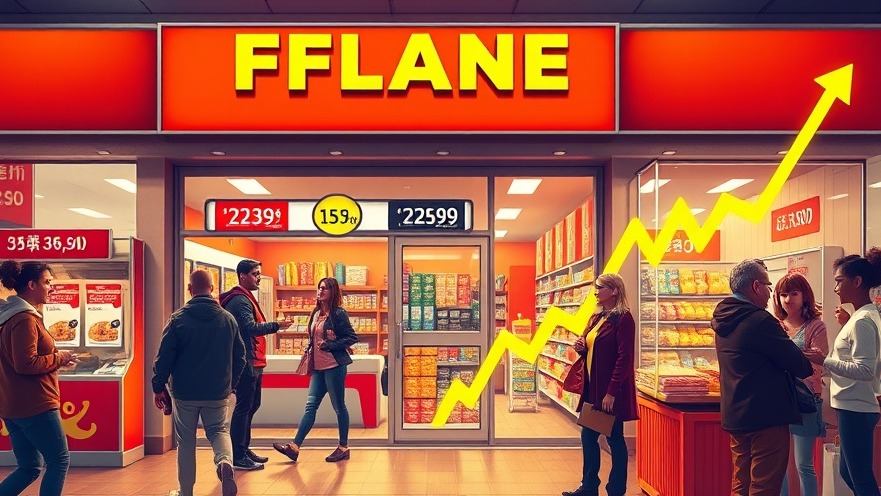
How Tariffs Impact Economic Stability
The implementation of tariffs during recent administrations has raised significant concerns about their effects on the U.S. economy. Federal Reserve Chair Jerome Powell stated that the policies put forth by former President Trump could undermine the goals of job creation and stable inflation. These tariffs, aimed primarily at protecting American industries, may inadvertently backfire, pushing consumer prices higher and slowing down economic growth.
The Balancing Act: Protecting Domestic Interests vs. Global Trade
Tariffs often seek to protect domestic jobs by making foreign goods more expensive. However, as pointed out by Powell, such measures can lead to unintended consequences. As prices rise, consumers may shift their spending habits, ultimately leading to job losses in sectors that depend on consumer activity. For franchisors, a deep understanding of how these economic shifts impact their operations and supply chains is critical.
The Ripple Effect Across the Franchise Landscape
Affected industries include retail and food service, where franchise businesses are closely tied to consumer spending. Increased prices may result in fewer customers visiting franchise locations or purchasing products. Franchisees, operating on thin margins, may struggle to absorb these costs, necessitating price hikes or cuts to other operational expenses.
Potential Strategies for Franchisors
Given the uncertainty surrounding tariffs and their economic implications, franchisors must adopt strategic approaches to mitigate risks. This might include:
Diverse Supplier Networks: Establishing a network of suppliers across different regions can reduce dependence on a single market and help manage costs.
Cost Management Practices: Implementing practices such as energy efficiency and waste reduction can help decrease operational costs, offsetting potential price increases due to tariffs.
Customer Engagement: Focusing on customer loyalty programs can enhance retention during economic downturns, ensuring franchisee performance remains stable.
Looking Ahead: Future Predictions on Trade Policies
As new political administrations review previous tariff policies, it is crucial for franchisors to stay informed of potential shifts. Future regulatory changes could ease or tighten tariffs, impacting operational strategies significantly. Stakeholders should monitor trade discussions and enact flexibility in their business plans to respond swiftly to changes.
Why Understanding Trade Policies Matters
The implications of tariffs extend beyond just pricing; they also affect global supply chains and market dynamics. For franchise owners, understanding the broader economic context is essential to navigate potential challenges. Organizations that adapt swiftly will not only survive but thrive in competitive landscapes.
Conclusion: Proactive Measures for Franchise Resilience
In an era of fluctuating trade policies and economic uncertainty, franchisors need to prioritize operational efficiency and brand consistency. By developing strategic frameworks that incorporate adaptability, franchise owners can ensure continued success despite external challenges. The key lies in staying informed and agile as they respond to both local and global economic shifts.
 Add Row
Add Row  Add
Add 






Write A Comment